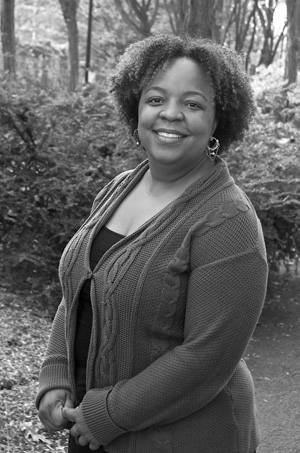Benita Miller
When American schools, service-providers and courts encounter pregnant and parenting teenagers, they treat them as a social welfare problem, directing scant resources to child protection and sex education to prevent additional births – in effect, presuming the young mothers guilty of incompetence and irresponsibility, neglect and abuse.
“By working in this narrow way,” says Benita Miller, founding director of the Brooklyn Young Mothers Collective, “we miss the opportunity to help young mothers thrive, build a better future for themselves and their children” and break the generational cycle of poverty.
Benita Miller represented teen mothers in foster care as a juvenile rights lawyer in Brooklyn Family Court. She saw how the community that had rallied around her own teen parents in Detroit in the 1970s was not available to her young clients. Nor were there developmentally appropriate services for girls whose lives were marred by incarceration, abuse, addiction and joblessness.
Miller’s response was to leave the Legal Aid Society in 2004 and build a new model to provide young, single mothers in central Brooklyn, one of the borough’s most under-served communities, with a comprehensive range of services focused on enabling them not only to complete their education but also to develop the social and emotional skills that would ensure their self-sufficiency and their families’ future success.
The unique strength of the Brooklyn Young Mothers Collective rests on the breadth and depth of its intervention, one that enfolds each young mother in a personalized continuum of care for herself, her baby and her kin network across health, education, housing, life skills and active community engagement. With family support lacking or, at best, ineffective, BYMC operates in loco parentis, from calling to wake girls in time to get to school and attending meetings with their principals, to writing reference letters to employers and helping them find an apartment.
BYMC girls not only provide invaluable support to one another, but they join Miller to advocate for changes in maternal health policy. Lobbying on Capitol Hill, one young mother educated Senator Dick Durbin about the importance of breast-feeding by doing just that in the Kennedy Caucus Room.
Texting constantly with the hundreds of young mothers she serves each year, working to expand the range of vocational development opportunities for them and grow the staff and capacity of her organization, Miller is creating a network of academics and community-based advocates with the shared goal of promoting alternative poverty-reduction strategies, positioning BYMC to serve as a model in the field.
In May 2007, Miller convinced the NYC Department of Education to shut sub-standard “P-schools” that segregated and warehoused teen mothers. Now, with Paul Duongtran, a Fordham Graduate School of Social Services professor, she has embarked on a massive longitudinal study that they expect will have national implications, “Educational Rights and Barriers of NYC Teen Mothers.”
Partnering with the National Women’s Law Center, Miller is also working for passage of the Pregnant and Parenting Students’ Access to Education Act, a bill aimed at increasing graduation rates and college and career-readiness.
A single mother herself, Miller sent her 18-year-old son Rush off to Cornell this fall and has Memphis, her 7-year-old daughter, at home, lending personal resonance to her work to eliminate external barriers for young women so they can focus on completing school, getting a job, successful parenting – and growing up.
 Photo by Dorothea von Haeften
Photo by Dorothea von Haeften